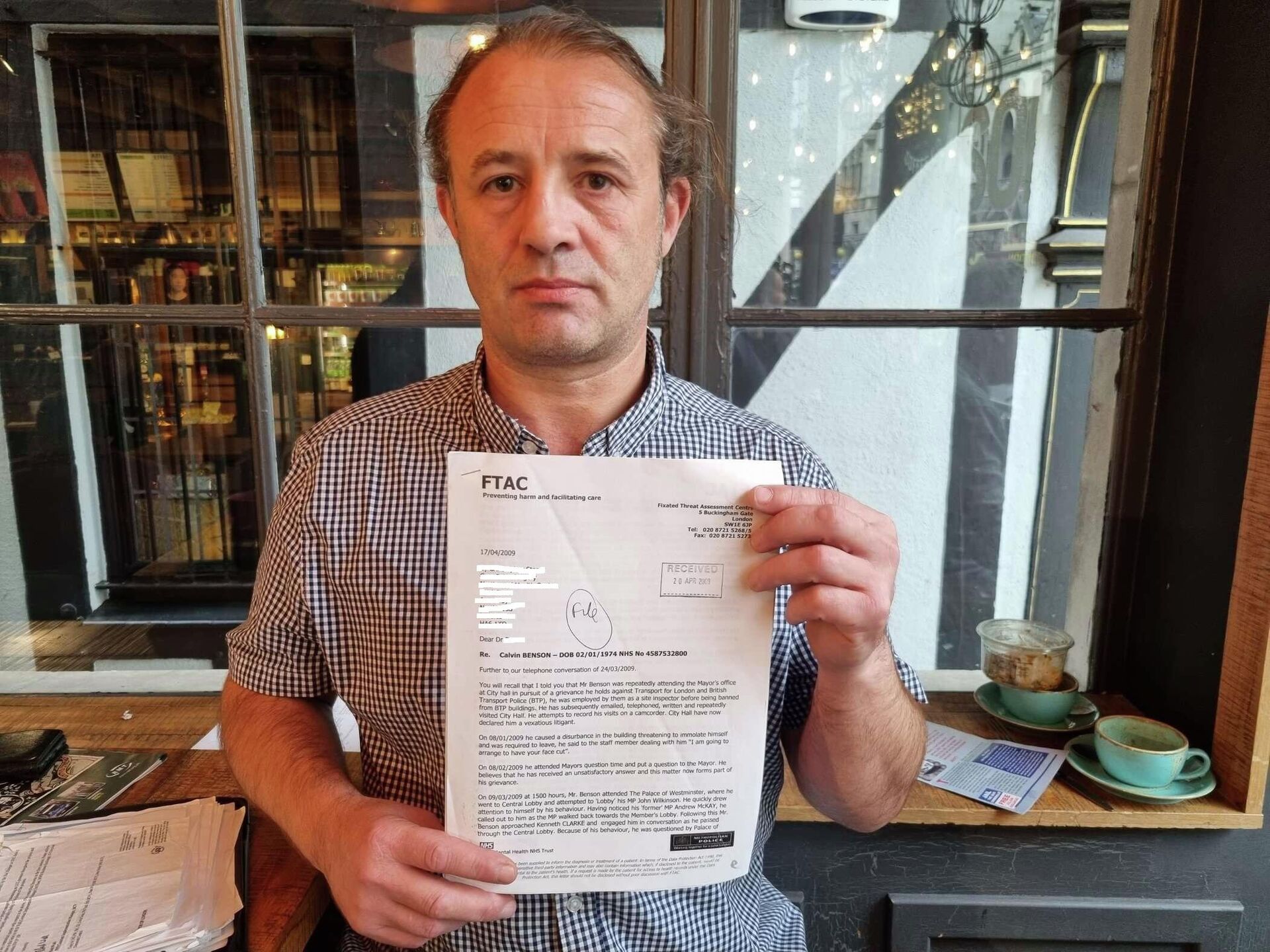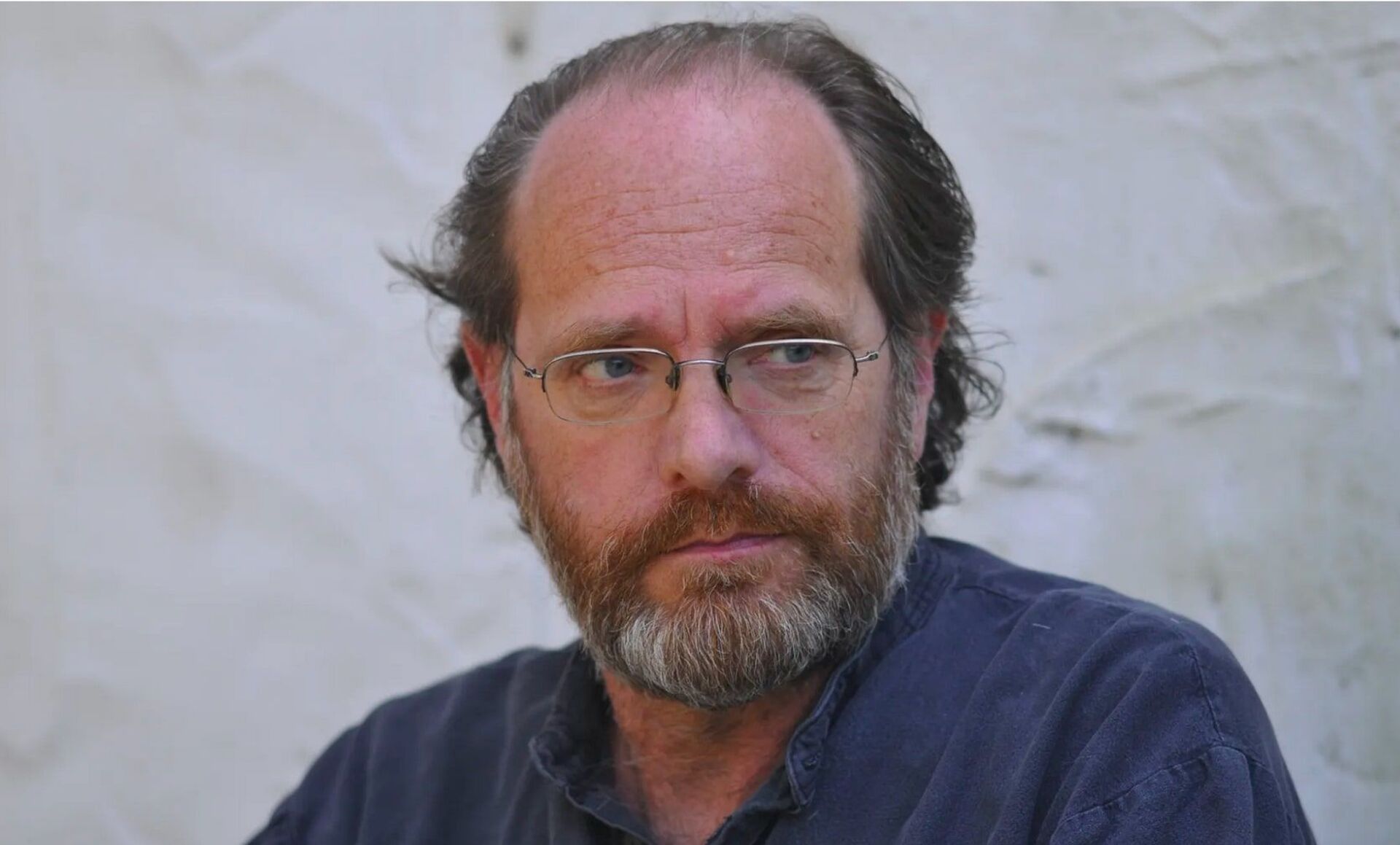Will UK Follow US and Bring in Law Which Campaigners Say Turns Whistleblowers Into ‘Bounty Hunters’?
08:00 GMT 15.11.2021 (Updated: 15:16 GMT 28.05.2023)

© AP Photo / Virginia Mayo / Frances Haugen whistleblower
Subscribe
Between September 2020 and March 2021 more than a quarter of employees who raised concerns about COVID-19 were dismissed for whistleblowing. The Department for Business, Energy and Industrial Strategy said this was “unacceptable” and the UK government is said to be planning new legislation to protect whistleblowers.
A row is brewing between two rival organisations about the shape of new legislation on whistleblowers.
Whistleblowers UK wants to set up a regulator, the Office Of the Whistleblower, which would handle such cases but the rival Compassion In Care says it fears it would lead to a US-style system which offers rewards to people who come forward.
Eileen Chubb, the founder of Compassion In Care, said: “We believe whistleblowers should be compensated by the court for losses they have suffered. But if you need money to whistleblow then you are doing it for the wrong reasons.”
In 2010 the US introduced the Dodd-Frank Wall Street Reform and Consumer Protection Act, which was designed to encourage whistleblowers to come forward and alert the public to corruption by their employers or other organisations.
Under the Dodd-Frank Act public-spirited individuals are rewarded for whistleblowing and are given a percentage of the money which has been saved.
US Whistleblowers Have Been Paid Millions
Since 2012 the Securities and Exchange Commission - which oversees Wall Street - has handed out US$676 million to 108 individuals, including US$114 million to one person in October 2020.
The SEC has its own Office of the Whistleblower and SEC Chairman Jay Clayton said last year: “Whistleblowers make important contributions to the enforcement of securities laws and we are committed to getting more money to whistleblowers as quickly and as efficiently as possible.”
Last month the Commodity Futures Trading Commission paid out a record reward of US$200 million to a whistleblower who provided crucial information about global benchmark manipulation which ended up saving the authorities trillions of dollars.

Calvin Benson with letter from FTAC to his GP
© Sputnik / Chris Summers
On its website Whistleblowers UK said people who have "brought to light criminal activity or wrongdoing that will have resulted in benefits to individuals and society as a whole" should be 'compensated'.
It goes on to say: "For example, protection of the vulnerable from abuse, fraud prevention, tax recovery and exposing corrupt practices. These actions that benefit society should be encouraged and recognised by way of financial compensation, and other forms of recognition, separate from that awarded by the tribunals. The amount can be determined by the Office of the Whistleblower."
In 2008 Calvin Benson, a former London Underground project inspector, leaked details about excessive pay which had been earned by contractors Metronet, which went bust at a cost to the taxpayer of £1.7 billion.
Mr Benson said: “I didn’t do that to get money. If the US system had been in place I would have earned millions but that is not why I did it. Whistleblowers shouldn’t do things with a financial incentive in mind.”
Mrs Chubb believes if Britain follows the American route lawyers and the “compliance industry” will get rich but at the expense of genuine public interest whistleblowing.
“We are totally opposed to the US system. The Dodd-Frank Act rewards people for saving public money, not for saving lives. If someone reports their concerns about residents in a care home being slapped or hit they’re not interested because there is no money in it for them,” said Mrs Chubb, who published a book last year called There Is No ME In Whistleblower.
She said: “Under the US system if a housewife wanted to report that she wasn’t charged tax on an item she’d get a reward. But she hasn’t risked anything. She’s not likely to lose her job. It makes whistleblowers into bounty hunters. Soon the word whistleblower will become a dirty word.”
Truth Defence, a pressure group which fights online misinformation, published a report recently which warned: “Whistleblower ‘services’ have become a billion dollar industry fuelled in particular by US legislation that has introduced various forms of ‘bounty’ for state-sanctioned whistleblowing.”
But Jane Turner, a former FBI whistleblower, said: "The issue of 'bounty hunting' by whistleblowers is nothing more than a smoke screen perpetrated by individuals or agencies who have something to hide. The stories of whistleblowers who get record rewards are minimal compared to the millions of whistleblowers who lose everything."
She added: "All (SEC) payments came out of an investor protection fund established by Congress that is financed entirely through monetary sanctions paid to the SEC by securities law violators. No money was taken or withheld from harmed investors to pay whistleblower awards."
Ms Turner said: "Whistleblowing law is arcane and time consuming and many lawyers will not take whistleblower cases because of the complexity."
Whistleblowing Can 'Destroy Your Career'
Nicholas Wilson, who blew the whistle on HSBC’s practice of adding legal charges to store card debts, said: “Under the US system I would have got about US$40 million, but in the UK I’m on benefits and struggling to keep my house.”
He said: “I would advise people ‘Don’t blow the whistle’. They will destroy you. If you work in banking or the law you will never work again. You will destroy your career and you should be compensated for that. But you shouldn’t be rewarded.”

Nicholas Wilson
© Photo : Nicholas Wilson
Mr Wilson said he proposed setting up a central registry, similar to the Land Registry, with no connection to Parliament.
He wrote on his blog: “Every company employing others should pay an annual levy depending on their turnover. So a big bank would pay considerably more than a small family firm. The funds received would pay for the administration of the registry and compensation to whistleblowers where appropriate.”
The most prominent whistleblower in recent months has been Frances Haugen who leaked internal documents from Facebook and alleged the company was aware it inflicted harm on the mental health of teenagers, had done little to prevent content which promoted hate and put profit over the safety of users.
Private Members' Bill Would Have Set Up Regulator
The Office of the Whistleblower Bill, a private members’ bill originated by Liberal Democrat peer Baroness Kramer, got its second reading in the House of Lords in June.
A House of Lords spokesman said it was unclear if it would go further and it would be up to the government to decide whether to give it parliamentary time.
The Bill would have set up an Office of the Whistleblower which would have had the power to “create and maintain a panel of accredited legal firms and advisory bodies to advise and support whistleblowers”, maintain a “fund to support whistleblowers” and provide “financial redress to individuals whose whistleblowing…have harmed the individual’s employment, reputation or career.”
Our CEO hosted the visit by @fbiwhistlestop Jane and Victoria Turner @WhistleblowerNN and interviews with Baroness Kramer about her bill for #OfficeOfTheWhistleblower and the essential role of #whistleblowers globally pic.twitter.com/Be6bpyM98b
— WhistleblowersUK (@WB_UK) November 11, 2021
Whistleblowers UK has been “the driving force” behind the legislation but were unavailable for comment.
But their chief executive, Georgina Halford-Hall, who is a senior compliance consultant, wrote on their website: “We must normalise speaking up and help those who feel alone and abandoned by society. “
'Bringing About Change'
She added: “Working together we are determined to change the way that everyone thinks about whistleblowers…and our work with whistleblowers, governments and organisations around the world is key to bringing about change.”
Baroness Kramer’s bill incorporated recommendations made by the All-Party Parliamentary Group for Whistleblowing.
Georgina Halford-Hall is the chair of the secretariat for the APPG on Whistleblowing.
The chair of the APPG, Conservative MP Mary Robinson, said last month: “(We) are working to bring forward new legislation that will support all people who bravely speak up when they find failings in the workplace or anywhere else so that we can provide proper processes for people to be able to speak up against crime, corruption and cover-up with confidence.”
Is Public Interest Disclosure Act Flawed?
In Britain the Employment Rights Act 1996 gave the first protection for whistleblowers but it was amended two years later by the Public Interest Disclosure Act, known as PIDA.
It gave workers who were fired for whistleblowing the right to take their case to an employment tribunal.
The Department for Business, Energy and Industrial Strategy says: “The level of compensation is uncapped in whistleblowing cases to send a clear signal to employers that this type of behaviour is unacceptable.”
But Mrs Chubb said: “PIDA was based on compliance and it’s not robust enough for a courtroom. If you have a horrendous employer and they deny everything then it falls flat on its face. Anything that relies on a regulator will fail.”
What Is Edna's Law?
Compassion In Care wants to bring in Edna’s Law, which stands for Endangerment, Dereliction of Duty and Neglect Act, but refers to Edna, an elderly woman who died in a care home. Seven care home employees were later sacked for blowing the whistle.
Mrs Chubb said: “During the pandemic hundreds of people have lost their jobs after raising valid COVID concerns. They saw something was wrong and they spoke out. They risked everything. Those are the people who are being failed by the system and that is why we need Edna’s Law.”
Delivering the petition to No10 calling for Edna's law to protect whistleblowers. pic.twitter.com/oeUwuOdprf
— John McDonnell MP (@johnmcdonnellMP) March 12, 2015
Mrs Chubb says Edna’s Law is based on the experience of 9,000 whistleblowers and she said: “It would make it a criminal offence not to act on genuine concerns of a whistleblower or to cause a whistleblower harm, and it would be heard in a criminal court in front of a jury.”
But critics say Edna's Law would give police forces up and down the country, who are already over-stretched, more work.
Mrs Chubb said Edna’s Law - which is backed by former Shadow Chancellor John McDonnell - would offer "appropriate compensation" to the whistleblower but money would not be at the heart of the system.
She said Edna’s Law would also include a “public interest defence” for whistleblowers which could protect those, such as Katharine Gun, who leaked information about a secret US plan to spy on UN delegates ahead of a crucial vote shortly before the invasion of Iraq.
A spokesman for the Department for Business, Energy and Industrial Strategy told Sputnik: “No worker should lose their job for whistleblowing, and we are clear that it is unacceptable for an employer to dismiss or inflict detriment on someone for passing on information concerning wrongdoing.”
He added: “We have upgraded the whistleblowing regime to provide support for those who speak up and ensure they are treated fairly at work, including providing guidance on how workers can make disclosures while retaining their employment protections. We will be reviewing these reforms in due course to ensure they remain fit for purpose.”
